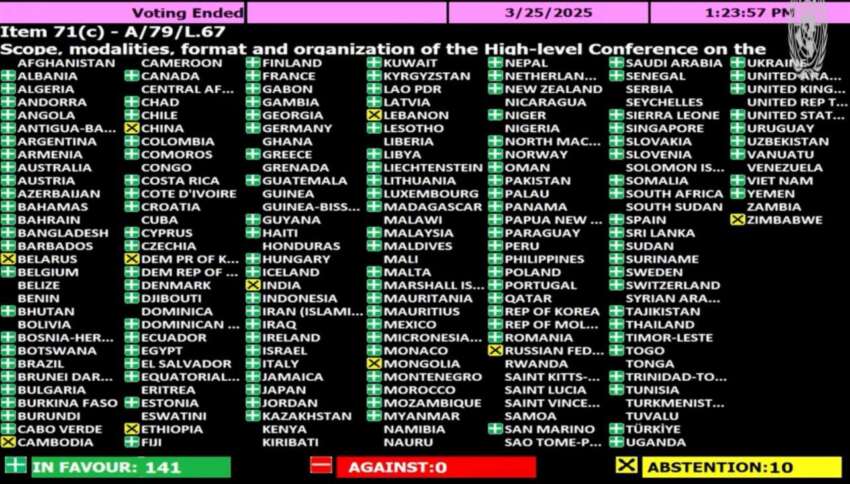
At the United Nations General Assembly, a draft resolution promoting the rights of Rohingya and other minorities in Myanmar was presented, where Russia, an ally of the military council, attempted but failed to remove key provisions through amendments that were decisively defeated. The discussion took place during the 62nd UN General Assembly plenary session in New York on March 25, focusing on a high-level conference regarding the situation of Rohingya Muslims and other minorities in Myanmar. The resolution aimed to address fundamental rights and create conditions for sustainable solutions to the ongoing crisis.
Myanmar’s Permanent Representative to the UN, Ambassador Kyaw Moe Tun, emphasized that protecting and promoting the basic rights of all people, including the Rohingya and other minorities, remains a priority for Myanmar. He stressed that the Rohingya issue is part of the broader problem stemming from the military dictatorship and its authoritarian system. The Ambassador highlighted how the military’s continued airstrikes and indiscriminate bombing across Myanmar make it impossible for refugees to return safely to their homes. He also drew attention to the military’s brutal actions against civilian populations, which the international community continues to witness.
The Russian delegation proposed three amendments to remove text regarding human rights issues, the creation of appropriate conditions for early return of Rohingya refugees, the involvement of the High Commissioner for Human Rights, and provisions related to gender parity and youth representation. However, all these amendments were overwhelmingly defeated in separate votes. The original resolution was ultimately adopted with 141 votes in favor, no votes against, and 10 abstentions. Myanmar voted against Russia’s proposed amendments and supported the original resolution, viewing the high-level conference as an opportunity to accelerate efforts toward problem-solving and ensuring meaningful participation from civil society organizations and other relevant stakeholders.



